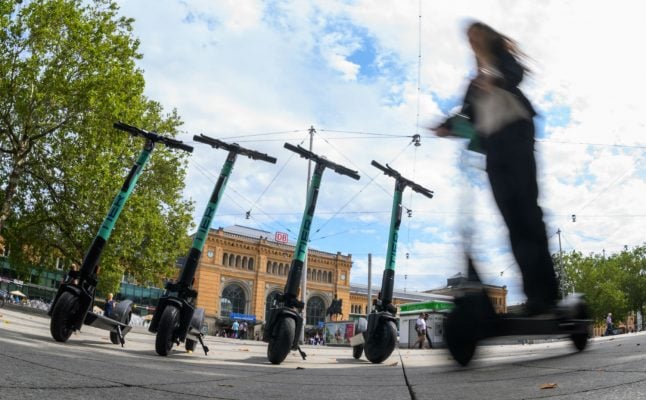“E-scooters should be completely banned,” Andreas Gassen, head of the KBV, told regional newspaper, the Neue Osnabrücker Zeitung (NOZ). “That’s the only thing that would help to avoid injuries. From a medical point of view, they're just too dangerous, so get rid of them.”
Gassen said his “worst fears” have come true. “Wherever these vehicles are now riding around, we have significantly more injured people,” he said.
Those injuries range from arm and leg fractures, to head injuries and even deaths, Gassen said. From a medical perspective, it was “irresponsible” to allow electric scooters in Germany in the first place, he added.
However, accident researcher Siegfried Brockmann of the German Insurance Association (GdV) called the comments “nonsense”.
“To demand a ban on electric scooters so soon after their introduction is nonsense,” Brockmann told the NOZ.
READ ALSO: Parking bans and restricted zones: How German cities plan to crack down on e-scooters
It was clear from the outset that accidents would happen when a new mode of transport was introduced, Brockmann said, adding: “We are also seeing serious accidents involving cyclists – but nobody would think of banning them in road traffic.”
Brockmann said stricter controls and higher fines were needed.
There are too many users “who drive in pairs or on the sidewalk or are under the influence of alcohol,” he said. Current accident statistics on e-scooters are not yet available to the insurance association.
'Freedom in road traffic'
Electric scooters have been allowed in Germany since mid-June.
There are currently no parking regulations for e-scooters at the federal level. However, there are some rules: the vehicles must be used on cycle paths – if there are none, users have to go on the road and avoid pavements. Users must also stick to a speed limit of 20 kilometres per hour and be aged 14 years or older.
There is no obligation to wear a helmet.
READ ALSO: 'Improve cycling infrastructure': Can Germany cope with electric scooters?
Calls have been growing throughout the summer for harsher rules on e-scooters and users after a spate of accidents.
However, Economics Minister Peter Altmaier (CDU) spoke out against stricter regulations for electric scooters.
Altmaier told the Funke media group that he was in favor of “freedom in road traffic”. There are already “more than enough bans”. It is important, however, that the safety of all road users remains guaranteed, he said.



 Please whitelist us to continue reading.
Please whitelist us to continue reading.
Member comments